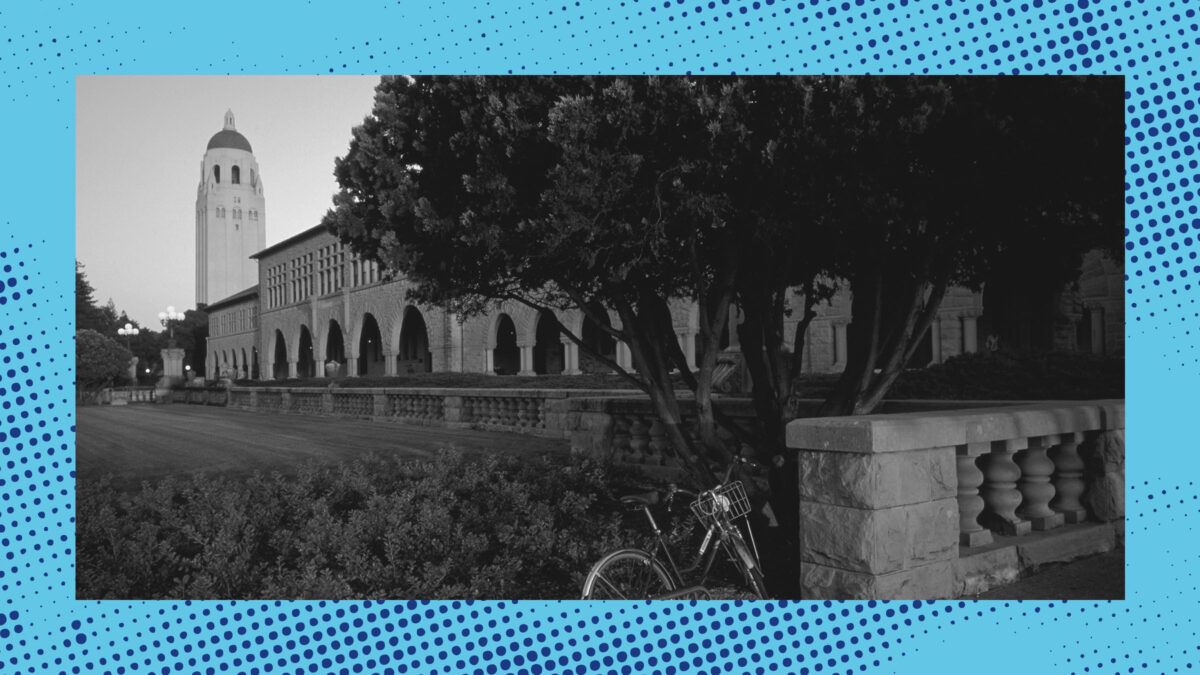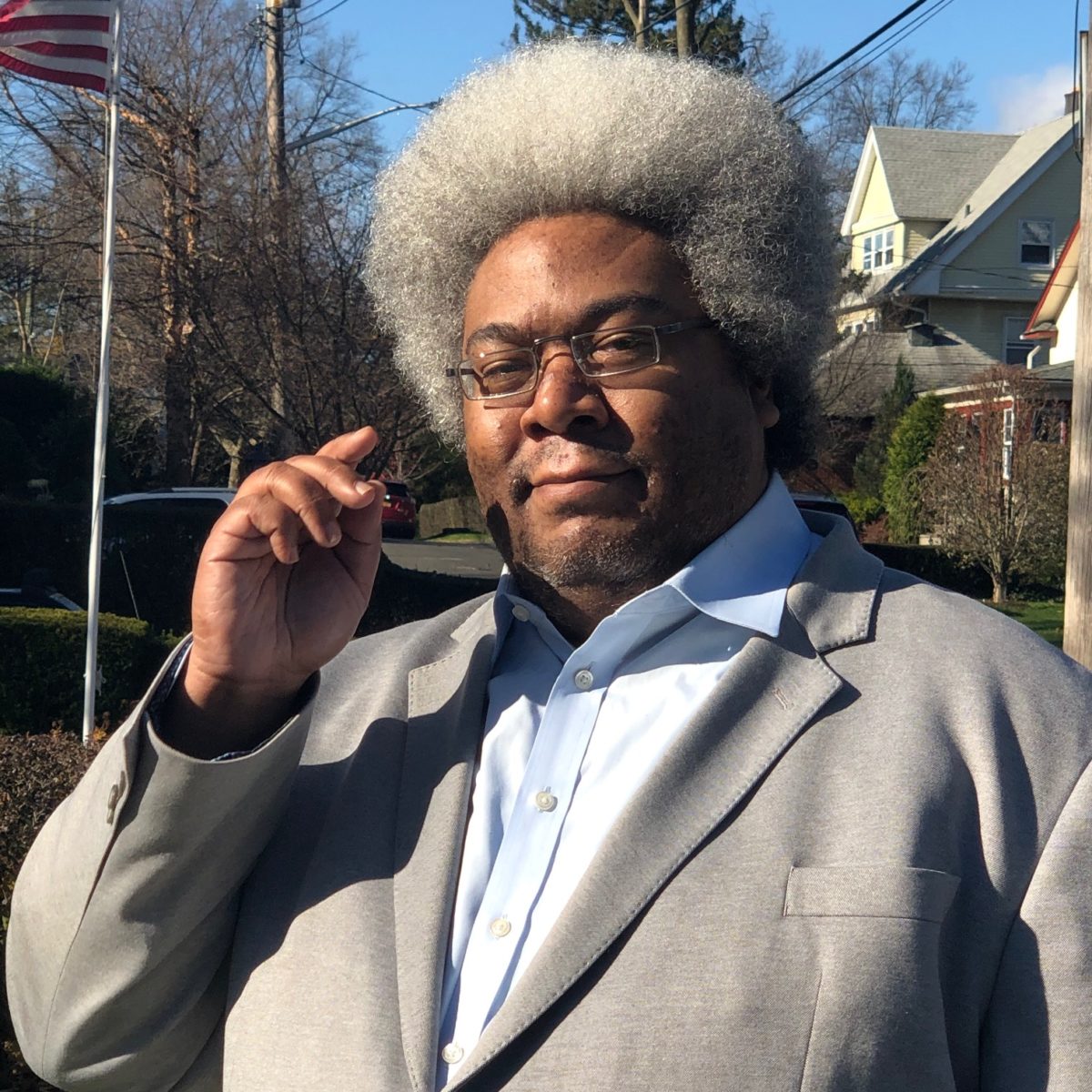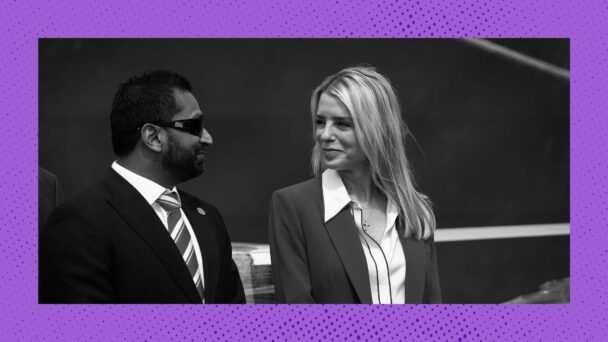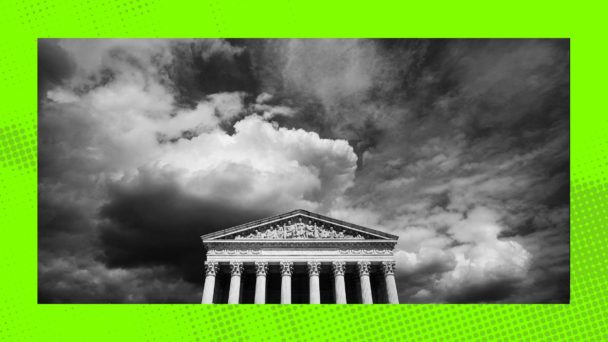The Federalist Society will keep punking elite law schools until those law schools stop falling back in fear and cowardice.
That’s not legal analysis or political analysis. That is street analysis. That’s schoolyard analysis. Anybody who has dealt with a bully before should understand how the Federalist Society operates. They will continue to stuff law school deans in their own lockers until one of them learns karate from a World War II veteran and (metaphorically) crane kicks one of these jerks in the face.
But the latest FedSoc stunt shows we are far away from the world where law schools are willing to do so. As you may have heard, federal appeals court judge Kyle Duncan went to Stanford Law School last week, and was greeted by a hostile crowd. Duncan is a homophobe who has been on crusade against transgender children since before he was elevated to the Fifth Circuit Court of Appeals by President Donald Trump in 2018. As a lawyer, he’s argued against same-sex marriage at the Supreme Court and defended the North Carolina anti-trans bathroom bill. As a judge, he cruelly refused to let a transgender woman change her name and pronouns for official purposes. He should be greeted by a tough crowd anywhere he goes outside of a Hobby Lobby or Chick-fil-A store.
Students made signs, protested, and shouted at Duncan. They also let Duncan speak and asked him questions—questions that Duncan refused to answer. Instead of trying to persuade the students (like an adult) or debate the students (like a halfway competent judge), Duncan chose to be combative, dismissive, and disrespectful to those who actually bothered to engage with him. His reaction indirectly proved the point made by the students who did not sit respectfully and quietly for his talk: FedSoc judges are not interested in “debate.” They have nothing of value to say to their detractors in an academic setting. They’re only there to give aid and comfort to the next generation of bigots.
If you think about it, Kyle Duncan’s “thanks to the Federalist Society for inviting me, as far as the rest of you people, whatever” speech at Stanford Law could actually work as a motto for the entire conservative legal movement
pic.twitter.com/ti5mMjMVNK— Jay Willis (@jaywillis) March 12, 2023
After it was all over, Duncan predictably ran to his media supporters with an edited video showing his martyrdom at the hands of Stanford students. The white wing myth-making machine went into overdrive, calling for administrators to be fired and for students to be expelled—all the things authoritarians call for when their rule is questioned by those who refuse to yield.
It was all theater. As Mark Joseph Stern explained at Slate, the entire stunt was designed to raise Duncan’s profile in the grand sweepstakes to be the next FedSoc Supreme Court justice. What gets people ahead in conservative legal circles these days is the same thing that gets people ahead in conservative political circles: owning the libs. Being a reasonable jurist who works to find common ground with those who disagree with you doesn’t land you on Leonard Leo’s shortlist. Being a troll who flies around the country picking fights with twentysomethings will get Duncan noticed by the Ron DeSantis administration, should we be so cursed.
Nonetheless, days later, Stanford Law School caved and issued Duncan the apology he and his supporters demanded. In a letter, Stanford president Marc Tessier-Lavigne and law dean Jenny Martinez adopted a posture of sniveling cowardice in the face of FedSoc faux-rage. “What happened was inconsistent with our policies on free speech, and we are very sorry about the experience you had while visiting our campus,” they wrote. I guess gay and transgender students in the Stanford Law community aren’t worth as much to the school as their Republican donors.
Here’s another highlight (lowlight) from Stanford, when US Court of Appeals Judge Kyle Duncan told a student, “You are an appalling idiot, you’re an appalling idiot.” (Video obtained by @lawdorknews.) pic.twitter.com/qekHuJLn4o
— Chris “Subscribe to Law Dork!” Geidner (@chrisgeidner) March 12, 2023
Stanford is hardly the first law school to cow before complaints from FedSoc types about the excesses of woke culture. A few months ago, a different Fifth Circuit judge, James Ho, announced that he was “boycotting” hiring clerks from Yale Law School, an announcement that is about as impactful as me “boycotting” dinner with Rihanna. In the weeks that followed, Yale Law Dean Heather Gerken beclowned herself in her desperation to get Ho to Yale to speak. That event, at which Ho and others will presumably talk about how the First Amendment requires Yale students to swipe right on bigots on dating apps or they are the “real racists,” will happen next week. I’m sure Yale Law will warn its students that they must sit there patiently while the university fetes federal judges who deny rights to women, LGBTQ people, and children who would like to go to school without being shot at.
I’ve written elsewhere that part of the problem is that law schools insist on treating Federalist Society judges as if they were judges, instead of the politicians and activists they actually are. Stanford wouldn’t apologize to, say, Jair Bolsonaro or Viktor Orban if students protested their appearances, no matter how much people like Ed Whelan and David Lat demanded such an apology (and they would). Yale, presumably, wouldn’t beg David Duke or Nick Fuentes to hire Yale Law students, because even Heather Gerken could figure out that openly pining for the job opportunities racists provide is a bad look for her august institution. By any rational measure, people like Duncan and Ho are bigger threats to pluralism and equality than any barbeque sauce-splattered survivalist with dreams of overthrowing the government, because these guys have the power to make their dreams a reality and a lifetime appointment in which to do it.
But the administrators at Stanford and Yale don’t see it that way, because they are, to their cores, institutionalists. And institutionalists will always seek to protect the institution over (1) the people who make up that institution or (2) the society in which that institution exists. Institutionalists will only fight to the point that their institution is threatened. Stanford, for instance, is happy to talk about being a welcoming community for all genders and sexual orientations when it costs them nothing. They’re happy to hire an Associate Dean of Diversity, Equity, and Inclusion officer to show off at parents’ weekend. But when it came time to stand behind these inclusive platitudes—when that associate dean had to say something to defend the people FedSoc judges won’t—the institutionalists at Stanford folded like cheap chairs. I’ve met actual backyard cardinals less skittish about the approaching night.
This is a particularly hard lesson for progressive law students and lawyers to learn, because law students and lawyers are self-selected to be institutionalists. Our value proposition only holds within the bounds of continued institutional relevance. We’re not warriors or hunters or pugilists; our skills are not much use in a state-of-nature where all the institutions have been burned down. We’re not doctors or carpenters or drug dealers; our talents are not objectively useful in a post-apocalyptic scenario where society is trying to rebuild. Without the system in place, the value of a lawyer who understands how that system works is reduced to zero. To put it another way: I’m a goddamn expert on an entire branch of government, and I couldn’t get a job in Canada if the American legal system went poof tomorrow. It would take me half a decade to learn enough about the rules about riding a moose under the influence before I could be an effective legal commentator up there.
We know precisely how places like Yale and Stanford will react to the threat posed by Federalist Society activists, because we have centuries of examples of seeing institutions of higher learning react to mouthy authoritarians: by caving. History shows that the great Heidelberg University in Germany found a way to disappear its Jewish teachers and students after a group of young Nazis “took over” its student union. History shows that Humboldt University, the teaching home of Albert Einstein, donated 20,000 of its books to Joseph Goebbels’s fires. History shows that when the bad people rise, the institutions float along with the tide. Even when institutionalists privately disagree with the bad guys, they have no clue how to fight them.
I imagine that institutionalists will point out that Heidelberg and Humboldt are still there. They survived (even if many of the people didn’t.) And that’s what’s important, right? After all, they only went along with the Nazis when the Nazis were super powerful. Just as soon as somebody else did the hard work of, you know, defeating national socialism, those institutions went right back to being against what Nazis stood for. And don’t worry—eventually, the institution will put up a plaque or build a lovely water fountain to commemorate all the things the institutional leaders didn’t do while other people were fighting and dying.
The people running our most cherished institutions—a law school, a newspaper, a Department of Justice—will never be the ones willing to fight the conservative forces now threatening to topple democratic self-government and roll back the human rights progress of the last century. They have too much to lose. It’s people like the students at Stanford, and people in other law school and non-law school settings who are unwilling to tolerate ascending cryptofacism, who are going to have to take on this work. And the people willing to fight will have to do it over the objection of institutionalists, telling them to be calm, quiet, and respectful of those who would take everything from them.
It’s better, perhaps, that law students learn this lesson now. Because the generation of lawyers we need to fight these people are not those who will remain silent and do what the authority figures tell them to do. We need people who will use their knowledge not to uphold corrupt systems, but to destroy them and build better, fairer, safer, more equitable ones in their place. We don’t need more lawyers. We need more saboteurs.




